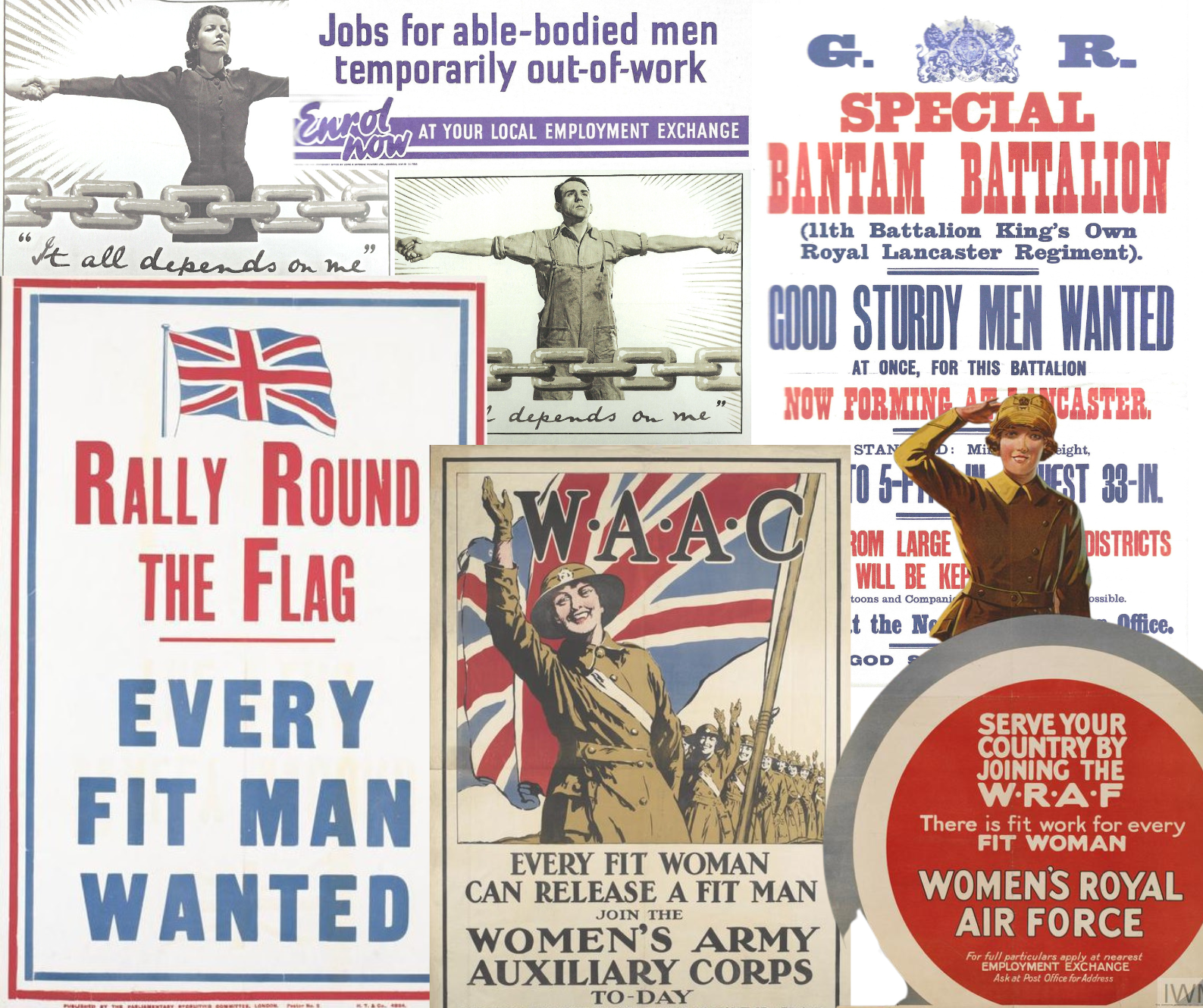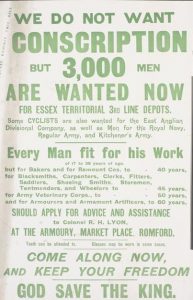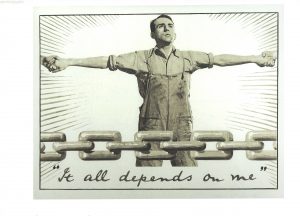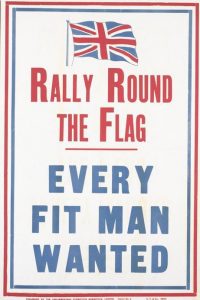
As part of the research for the Disability: Past and Present project, I’ve spent a lot of time looking through the collections of the Imperial War Museum. Some of the most helpful resources I’ve found are the posters and proclamations used to recruit soldiers and war workers.
What I’ve found very striking is the language used in this propaganda and how it excludes disabled people.



One thing that you come across regularly in this type of propaganda is an appeal for ‘fit’ men and women. The Ministry of Munitions were looking to recruit strong and resilient soldiers and war workers. They would go on to make appeals for ‘good sturdy men’ who are ‘able-bodied’. What they were looking for are men and women like those pictured in these “It All Depends On Me” posters, who were tough links in a chain that would withstand the impact of war. If you look at these images, you’ll see that the man and woman, who form part of the chain, stand proud and determined. They are the perfect candidates for war work, as the Ministry of Munitions sees it.
In these posters and proclamations, the imagery and language are patriotic, bold, attractive and inspiring. Clearly, it was not the purpose of this propaganda to discriminate against those with disabilities or chronic illnesses. The purpose of these posters was to recruit (mostly) men fit enough for active service. However, by trying to appeal to who they think will make the best soldier, these posters also make plain what kind of people they don’t want.
If you were a disabled or chronically ill person seeing this propaganda, how would you feel?
Disabled people are excluded from the idealistic image of a soldier or war worker, shown above. If you aren’t ‘fit’ or ‘sturdy’ enough to fight you may feel as though you can’t be of use to your country. At a time when patriotism was important – where ‘fit’ men were urgently needed and highly respected – you might feel unwanted. Even though this was not the intention, the propaganda suggests that disabled people are of little use during war.
At The Devil’s Porridge Museum, we know that this is not true. People with disabilities and chronic illnesses formed part of the 30,000 strong workforce who worked tirelessly to make munitions. Even though they didn’t fight, they risked their lives in toxic, dangerous conditions to ensure victory. By producing munitions, disabled and chronically ill people contributed greatly to the war effort back home. In the Disability: Past and Present project, we will be sharing the stories of those workers with disabilities and chronic illnesses in our upcoming exhibition and book (which launch in November).
All images sourced from the Imperial War Museum.
Their collections are available to access through this link: IWM Collections | Imperial War Museums
Bibliography
Fit Men Wanted, The Imperial War Museums (Thames & Hudson, 2012)

